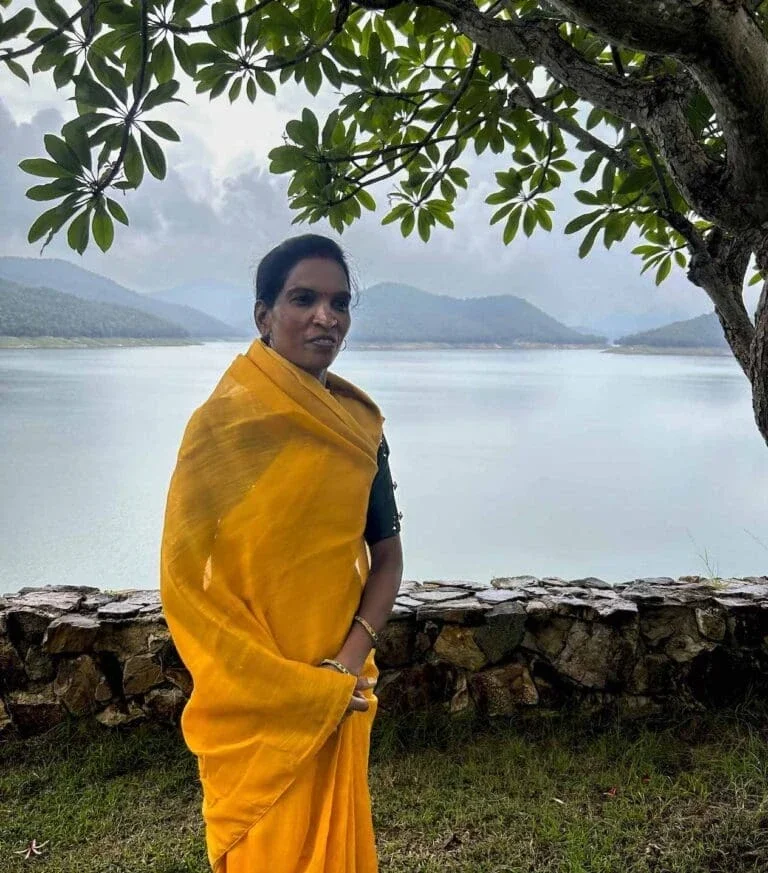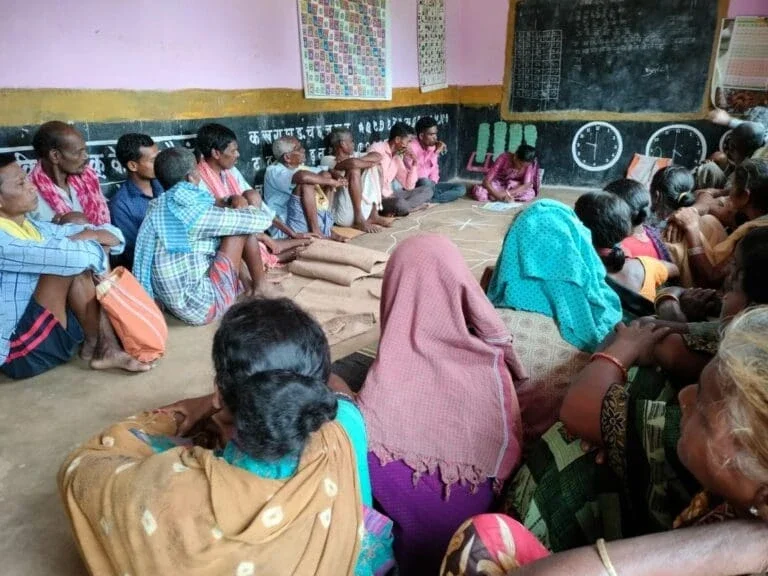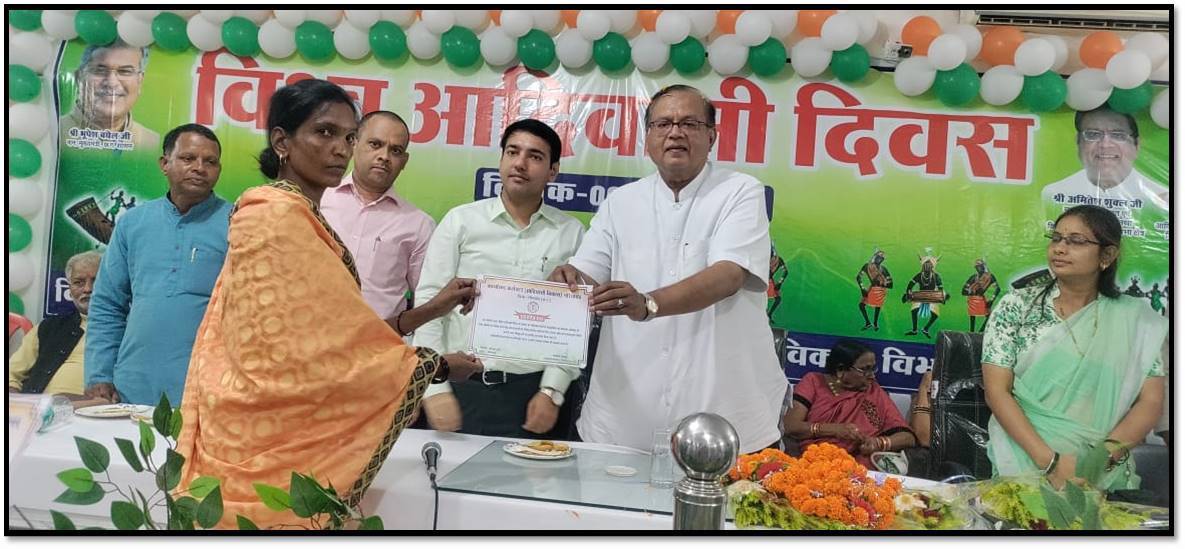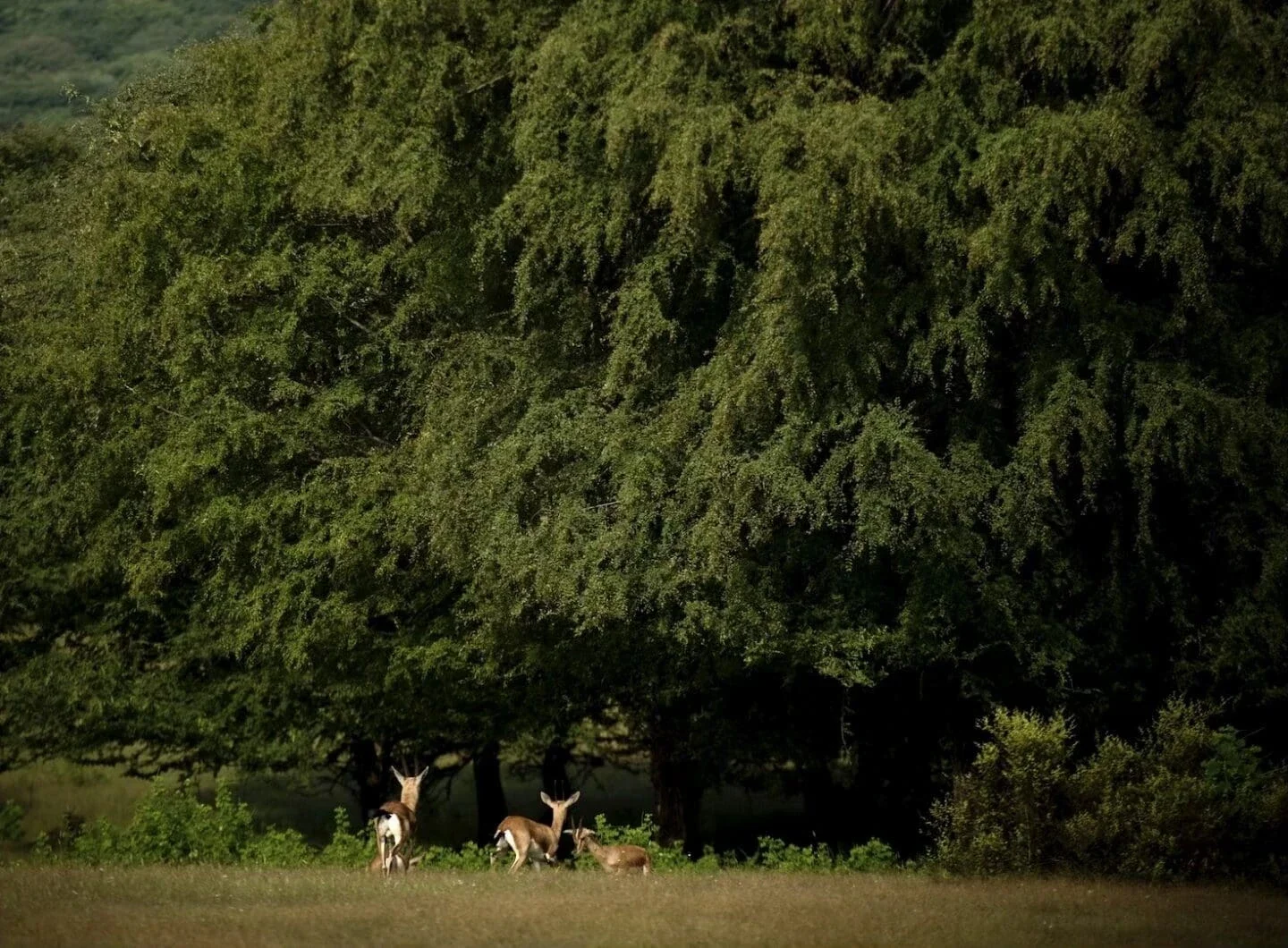Then reserves were created in the name of environmentalism. Many Indigenous lost their incomes and traditional way of life. This underscores the importance of engaging frontline communities in policymaking.
Saraswati’s first job was with a local community-based organization. Initially, it was simply about earning a salary. But she quickly became excited to be working for the rights of fellow Indigenous forest dwellers forced out of their traditional homes when the government declared their lands nature reserves.
An estimated 275 million people in India depend on forests for at least part of their income, according to the World Bank, which notes that Indigenous forest dwellers are among the poorest and most vulnerable people in India.
Despite making up only about 8 percent of India’s population, forest dwellers also comprise about half of those displaced by ambitious projects.
These unintended consequences are a key reason that it is crucial to engage local communities.
As a girl, Saraswati felt herself and her family to be without power. She didn’t know then that she would eventually help protect the rights of all her neighbors in her home village of Nagari.

Marginalized Forest Dwellers Unite Behind the Forest Rights Act
Her dedication to her work led to her first victory for a village in 2004. But an even larger victory came in 2006 when she helped organize thousands of traditionally marginalized forest dwellers, and the government approved the Forest Rights Act.
“For others, a forest is just trees. For us, it is life,” Saraswati said. There were times “when officials tried to undermine me as a woman. But if you are doing the right thing, you shouldn’t fear anything.”

Rather than being a “problem” that needed to be cleared out of the way to create “protected lands,” the Forest Rights Act acknowledged that tens of thousands of communities have been protecting their forests for generations.
It recognized their “right to protect, regenerate, or conserve or manage any community forest resource, which they have been traditionally protecting and conserving for sustainable use.”
Evolving Perspectives, from Local to National to Regional
With a track record of success, Saraswati turned her attention to Nagari, the village of her birth. She had to educate her community from the ground up to make them advocates in this cause, and it took several years.
On Aug. 9, 2021, World Indigenous Day, her village won their struggle and was granted rights over their traditional lands. She spoke at the ceremony, which was televised live. Congratulatory texts and emails poured in from Nagari.
“I had earned their respect,” she said. “It was the best day of my life.”
Forests help mitigate the impacts of climate change, and women in forest-dwelling communities often hold profound knowledge of resources and conservation practices, from no-till cultivation to targeted irrigation that conserves water.

India’s Forest Rights Act provides women with a platform to share their perspectives, through representation on the village council, and offers a legal space for women to secure land rights in their name.
Saraswati, now 42, the mother of a young daughter and president of a local community-based organization (Khoj Evam Janjariti Samiti,) said her work taught her to think nationally, but attending the Building Bridges workshop taught her to think regionally.
“When I’m back home, I want to share with my community how others are struggling with challenges, and coming up with their own solutions,” she said. “There are lessons in what we’ve discussed here. If we come together, we can make change.”
More from this series
Thailand: A Farmer Confronts Human-Induced Challenges in the Mekong Basin
A Woman Farms Along the Mekong River: “We are a small village, but we have to share our experiences and keep learning.”
READ MOREIndonesia: Educating Island Farmers About Climate Change
Urging the Young to Become Modern Island Farmers: “Cities are squished—physically and mentally. We need farms for food, and healing.”
READ MORE